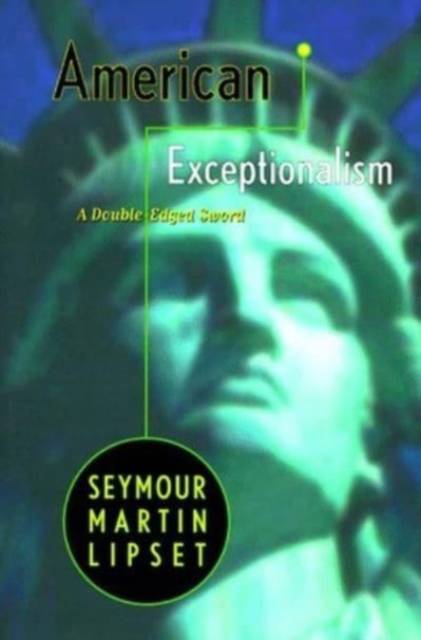
Je cadeautjes zeker op tijd in huis hebben voor de feestdagen? Kom langs in onze winkels en vind het perfecte geschenk!
- Afhalen na 1 uur in een winkel met voorraad
- Gratis thuislevering in België vanaf € 30
- Ruim aanbod met 7 miljoen producten
Je cadeautjes zeker op tijd in huis hebben voor de feestdagen? Kom langs in onze winkels en vind het perfecte geschenk!
- Afhalen na 1 uur in een winkel met voorraad
- Gratis thuislevering in België vanaf € 30
- Ruim aanbod met 7 miljoen producten
Zoeken
€ 37,45
+ 74 punten
Uitvoering
Omschrijving
"American values are quite complex," writes Seymour Martin Lipset, "particularly because of paradoxes within our culture that permit pernicious and beneficial social phenomena to arise simultaneously from the same basic beliefs."
Born out of revolution, the United States has always considered itself an exceptional country of citizens unified by an allegiance to a common set of ideals, individualism, anti-statism, populism, and egalitarianism. This ideology, Professor Lipset observes, defines the limits of political debate in the United States and shapes our society.
American Exceptionalism explains why socialism has never taken hold in the United States, why Americans are resistant to absolute quotas as a way to integrate blacks and other minorities, and why American religion and foreign policy have a moralistic, crusading streak.
Born out of revolution, the United States has always considered itself an exceptional country of citizens unified by an allegiance to a common set of ideals, individualism, anti-statism, populism, and egalitarianism. This ideology, Professor Lipset observes, defines the limits of political debate in the United States and shapes our society.
American Exceptionalism explains why socialism has never taken hold in the United States, why Americans are resistant to absolute quotas as a way to integrate blacks and other minorities, and why American religion and foreign policy have a moralistic, crusading streak.
Specificaties
Betrokkenen
- Auteur(s):
- Uitgeverij:
Inhoud
- Aantal bladzijden:
- 354
- Taal:
- Engels
Eigenschappen
- Productcode (EAN):
- 9780393316148
- Verschijningsdatum:
- 1/04/1997
- Uitvoering:
- Paperback
- Formaat:
- Trade paperback (VS)
- Afmetingen:
- 152 mm x 229 mm
- Gewicht:
- 498 g

Alleen bij Standaard Boekhandel
+ 74 punten op je klantenkaart van Standaard Boekhandel
Beoordelingen
We publiceren alleen reviews die voldoen aan de voorwaarden voor reviews. Bekijk onze voorwaarden voor reviews.









